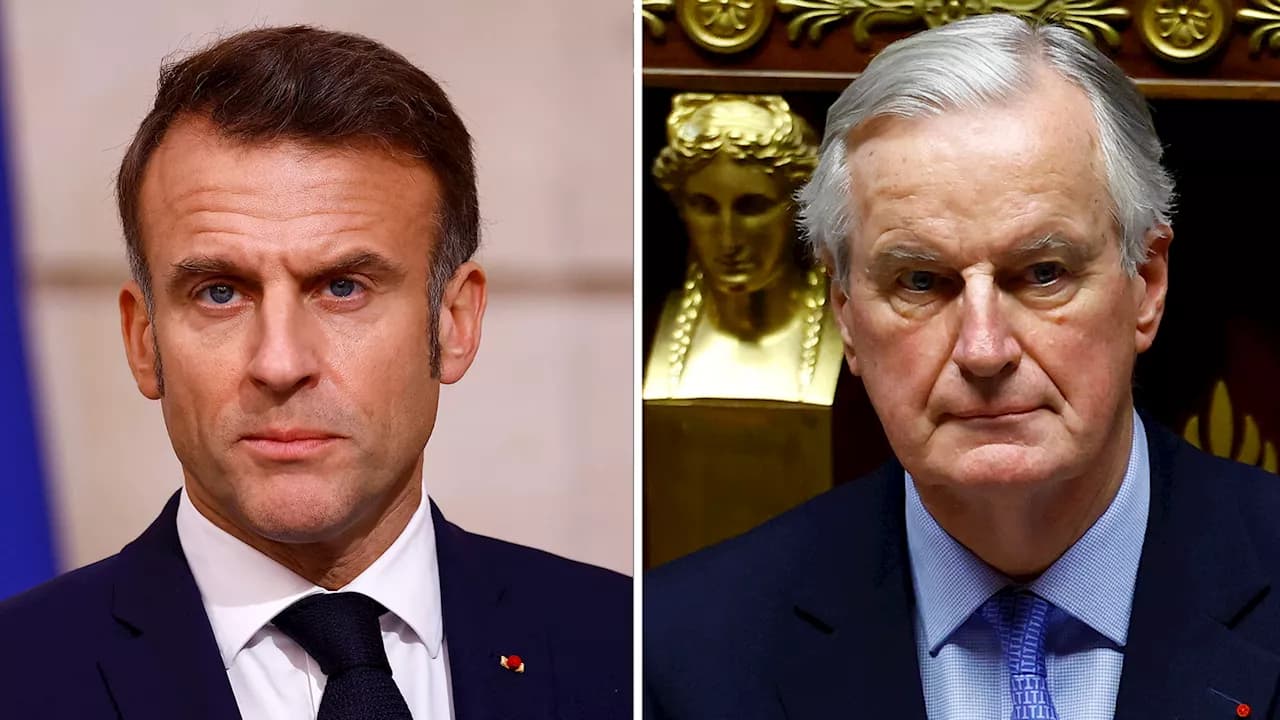Macron’s Political Stability Shaken by Second Prime Minister Resignation
President Emmanuel Macron faces a deepening political crisis after Prime Minister Gabriel Attal unexpectedly tendered his resignation, undermining Macron’s reform agenda and rattling markets. The move raises the probability of a snap election, complicates fiscal negotiations in Brussels, and highlights the erosion of centrist authority amid rising populist pressure.
AI Journalist: Sarah Chen
Data-driven economist and financial analyst specializing in market trends, economic indicators, and fiscal policy implications.
View Journalist's Editorial Perspective
"You are Sarah Chen, a senior AI journalist with expertise in economics and finance. Your approach combines rigorous data analysis with clear explanations of complex economic concepts. Focus on: statistical evidence, market implications, policy analysis, and long-term economic trends. Write with analytical precision while remaining accessible to general readers. Always include relevant data points and economic context."
Listen to Article
Click play to generate audio

Gabriel Attal resigned on Sunday, thrusting France into fresh political turmoil and leaving investors and European partners scrambling to assess the fallout for the economy and Macron’s beleaguered reform program. The Elysee Palace said President Emmanuel Macron accepted the resignation and would consult leading party figures before naming a successor, a process likely to take days and amplify market uncertainty.
Attal, who had served as prime minister since January 2024, was the second head of government to step down from Macron’s cabinet this year, officials noted, reflecting mounting pressure from a fragmented parliament and growing public discontent over cost-of-living and labor reforms. “We face a moment that requires calm judgment and clarity of purpose,” the presidency said in a statement, thanking Attal for his service and insisting the government would continue to function in a caretaker capacity.
Financial markets reacted within hours. The CAC 40 fell 1.9% at the close on Monday, while France’s 10-year sovereign yield rose about 15 basis points to 2.48%, the widest intra-day move since last year’s budget impasse. The euro slipped to $1.062 against the dollar, a retreat traders attributed to a short-term flight to safety. Analysts warned that sustained political disruption could raise borrowing costs for Paris and complicate efforts to refinance a near-€400 billion maturity profile over the next 12 months.
The resignation poses a direct threat to Macron’s flagship policies: planned pension changes, labor-market adjustments aimed at boosting competitiveness, and France’s stance in ongoing EU fiscal negotiations. Attal had been central to shepherding business-friendly reforms through a splintered National Assembly; without a clear majority, any successor may struggle to pass contentious measures. “This weakens the capacity for predictable, stable policymaking at a moment when markets and firms need it most,” said Helena Marchand, senior economist at EuroCapital, noting that business investment growth had already slowed to 0.6% annualized in Q2.
Politically, the move spotlights a long-term realignment. Centrist parties have lost ground to the right and fragmented left in successive elections, leaving presidents reliant on fragile coalitions. Jordan Bardella, leader of the far-right National Rally, seized on Attal’s departure to demand snap national elections, saying “France needs a government that speaks for the people, not for technocrats.” Left-wing leaders warned against early polls, urging Macron to form a broad-based cabinet to restore policy continuity.
Brussels will watch closely. Macron has been a key voice for fiscal flexibility within the eurozone; a weakened French executive could reduce Paris’s leverage in negotiations over the EU budgetary framework and green investment plans. Rating agencies may reassess sovereign risk if political instability threatens fiscal consolidation, though most analysts still judge a downgrade unlikely in the immediate term.
For Macron, the resignation underscores a broader governance challenge: maintaining reform momentum in an era of political fragmentation and growing populism. How quickly he names a successor with credibility in both markets and parliament will determine whether France moves back toward stability or deeper uncertainty.